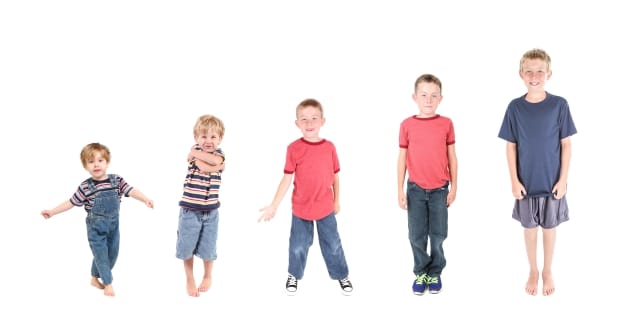Six Ways Becoming A Father Changes Your Brain
Up until now, parenthood had always been associated with women. The mother goes through:
- Nine months of pregnancy,
- Stressful and tiring labor,
- Nighttime feedings; lack of full sleep and
- Sacrifice of her well-being for the baby’s upbringing.
Yes, it’s all about the moms. However, being a father also changes men in many ways. “Today’s dads” are very much involved in childrearing, unlike their forefathers.
Research also shows like women; men also experience changes in their neurobiological process. During the past decade, most investigations focused on mothers and how their brain changes during and after pregnancy.
Surprisingly, scientists are now discovering that man’s brain also goes through several changes during their partner’s pregnancy. What are these changes?
Let’s find out!
Fatherhood Brain Changes
-
Depression
Postnatal depression in mothers after delivery is standard but have you ever heard of father’s postpartum experience? Well believe it or not, but depression among new fathers is common.
In fact, a study published in Pediatrics magazine revealed the depression rate is high in fathers during the first five years of their children’s lives.
According to health experts, paternal postnatal depression is either caused by:
- Lack of sleep,
- Lack of parenting experience,
- Unstable relationship with the partner and
- Financial problems.
A premature, sick or colicky baby can also strain the new father, leaving him depressed.
-
Hormonal Changes
Just like moms, fathers also start experiencing hormonal changes as soon as the news of “pregnancy” starts sinking in. A study conducted on both animals and humans showed males go through several hormonal changes especially if they’re more affectionate toward the mother and child.
The research on new fathers measured their oxytocin and prolactin levels at two and six months postpartum. A comparison between both tests showed that fathers with high levels at the beginning of the study still had sufficient levels even after four months.
Health experts claim men with high levels of prolactin and oxytocin turn out to be more responsive and committed fathers. New fathers with high levels of prolactin are also more alert to the baby’s cries.
-
New Neurons
Studies on animals show new neurons can develop in the father’s brain after the baby is born. The research done on rodents found the animals who met with their pups experienced a cell growth increase of the hippocampus region.
The hippocampus region of the brain is responsible for memory and navigation. For any reason, if this area of the brain is damaged, the person may experience severe memory loss, mood swings and have trouble coordinating.
In other words, having an activated hippocampus helps to stay mentally fit and young while reducing the risk of age-degenerative disease.
-
Increased Sensitivity
The term “maternal instincts” has always been considered a female characteristic. Surprisingly, dads are just as instinctive as moms.
To compare the responsiveness of both the parents, 27 fathers and 29 mothers took part in a study. The participants were asked to identify their baby’s cries from among the cries of five other babies.
On an average, 90 percent of the time, both parents were able to recognize their baby’s cries. Proving dads are just as amazing as moms!
-
Separation Anxiety
We’ve always heard mothers rant when they leave for work or run errands leaving their little one behind. Just like moms, the father also feels guilty about leaving the baby behind even if for a brief period.
A 2014 study showed men also deal with mixed emotions when they go to work, gym or other social gatherings without their family. In fact, many fathers go to the gym during their lunch break so they can spend more time with their family after work.
-
Parenting Network
In a recent study, some 89 parents took an examination in which they had to watch various video clippings of their babies. Results showed both sets of parents had activated brain networks while fathers experienced the same emotions as mothers.
Fatherhood Changes a Man!
Unquestionably, fatherhood changes a man. The tiny human infant that only eats, sleep, cries and poops hold a significant fascination for a new dad.
Just like mothers, the dad’s world also changes after a baby enters his environment. So, if you too are a new dad, make sure you spend lots of time with your family’s latest addition.
It will not only help you build a strong bond with your bundle of joy but will also improve your brain in many ways.
Copyright: rasstock / 123RF Stock Photo






